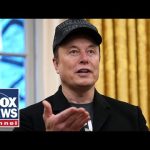As the world marks the third anniversary of Russia’s invasion of Ukraine, key leaders are converging in Washington, D.C., to address the ongoing conflict and its potential resolution. Central to these discussions is a proposed U.S.-Ukraine agreement on critical minerals, a deal that could reshape the economic and geopolitical landscape for both nations. While the Trump administration emphasizes economic recovery and resource development as paths to stability, tensions remain high over security guarantees and NATO membership for Ukraine.
President Donald Trump has championed the $1 trillion minerals deal as a cornerstone of his foreign policy, framing it as a way to recoup American wartime aid while fostering Ukraine’s economic recovery. Under the agreement, Ukraine would grant the U.S. access to its vast reserves of rare earth minerals, including lithium, titanium, and graphite—resources critical for modern industries like defense, electronics, and renewable energy. The deal also includes the creation of a joint reconstruction investment fund, with Ukraine contributing 50% of revenues from newly monetized resources. Trump has touted this as a win-win scenario that benefits American taxpayers while bolstering Ukraine’s economy.
However, Ukrainian President Volodymyr Zelenskyy has expressed reservations about the deal’s terms, particularly its lack of explicit security guarantees. Zelenskyy has also indicated his willingness to step down from leadership if it would secure peace and NATO membership for Ukraine—a bold move that underscores the stakes for his nation. While NATO allies like France and the UK have signaled openness to providing security assurances independently of the U.S., Washington has thus far resisted any commitments that would obligate American military involvement under NATO’s Article Five.
The negotiations have also exposed growing rifts between the U.S. and its European allies. French President Emmanuel Macron has urged Trump to adopt a more collaborative approach that includes European leaders in peace talks with Russia. Macron emphasized Europe’s readiness to contribute more significantly to Ukraine’s defense and reconstruction but criticized Trump’s unilateral dealings with Moscow, which have excluded both Kyiv and European nations. This divergence highlights ongoing tensions over transatlantic relations and America’s evolving role in European security.
Meanwhile, concerns linger over how Russia will react to these developments. While Trump has suggested that economic stability in Ukraine could deter future aggression from Moscow, critics warn that sidelining security guarantees risks emboldening Russian President Vladimir Putin. The exclusion of Ukraine from recent U.S.-Russia discussions has already fueled apprehension among European leaders, who fear that any rushed agreement could undermine Ukraine’s sovereignty and embolden Russian territorial ambitions.
As negotiations continue, the stakes remain high for all parties involved. For conservatives, Trump’s focus on economic diplomacy reflects a pragmatic shift away from endless military entanglements while prioritizing American interests. However, achieving a balance between economic incentives and robust security measures will be crucial to ensuring long-term stability in Ukraine and maintaining unity among Western allies. The outcome of these talks could define not only Ukraine’s future but also the broader dynamics of U.S.-European relations in an increasingly multipolar world.




